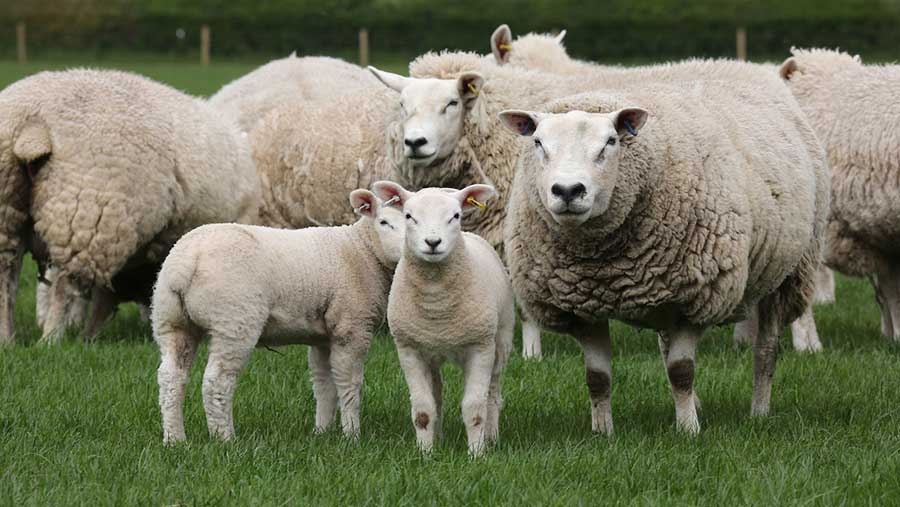Texel genomic project set to unlock carcass data
 © Tim Scrivener
© Tim Scrivener A genomic research project led by the British Texel Sheep Society could be the first step towards carcass data from abattoirs being included in genetic evaluations, according to society chief executive John Yates.
The £1.6m project, part-funded by the government innovation agency Innovate UK, is aimed at accelerating progress in sheep breeding and will lead to the development of genomic breeding values (GBVs) for carcass traits in the Texel breed.
See also: Q&A: How to prevent tapeworm from damaging sheep carcasses
The project, which is being undertaken in collaboration with Scotland’s Rural College (SRUC) and processor ABP, will use CT scanning and video image analysis (VIA) to generate extensive data on carcass characteristics.
Carcass analysis
During the three-year trial, thousands of Texel-sired lamb carcasses will be analysed by a combination of CT scanning and VIA to provide detailed information on the relative lean meat yields.
“The data will then be analysed to develop carcass trait GBVs for the Texel breed, providing unique information for breeders and ram buyers to base future selections on,” Mr Yates said.
The research project will introduce a nucleus of recorded commercial producer phenotyping farms providing Texel-sired lambs to the processor.
Health traits
These will be linked to pedigree Texel nucleus flocks already participating in the society’s phenotyping programme studying health traits for mastitis and foot-rot.
Mr Yates added there was a significant disconnection between carcass slaughter data and the breeding sector which provided the genetics for commercial sheep producers.
“Linking carcass information provided through this project with phenotyping flocks will enable improved feedback of data and shorten links between commercial and pedigree breeders,” said Mr Yates.
Additionally, the study will record and analyse carcass condemnation data and examine links between phenotype, genetics and management of key diseases, he explained.
Resilience
The carcass condemnation data will feedback essential flock health information on resilience at the commercial flock and breed level.
“It is hoped this information will help to identify the genetic components to some key diseases and, potentially, guide future breeding decisions with a view to helping reduce reliance on key veterinary medicines, including antimicrobials, which is a significant goal for the industry,” he said.
SRUC livestock geneticist Joanne Conington added the Texel was the first meat sheep breed in Europe to embrace genomic selection combining new, objectively recorded CT and VIA carcass information with key maternal performance indicators including disease resistance for foot-rot and mastitis.
“Having more information with which to select breeding animals, gives breeders flexibility to favour animals with specific attributes that better meet market specifications, as well as improving host resistance to economically important, endemic diseases,” she added.
